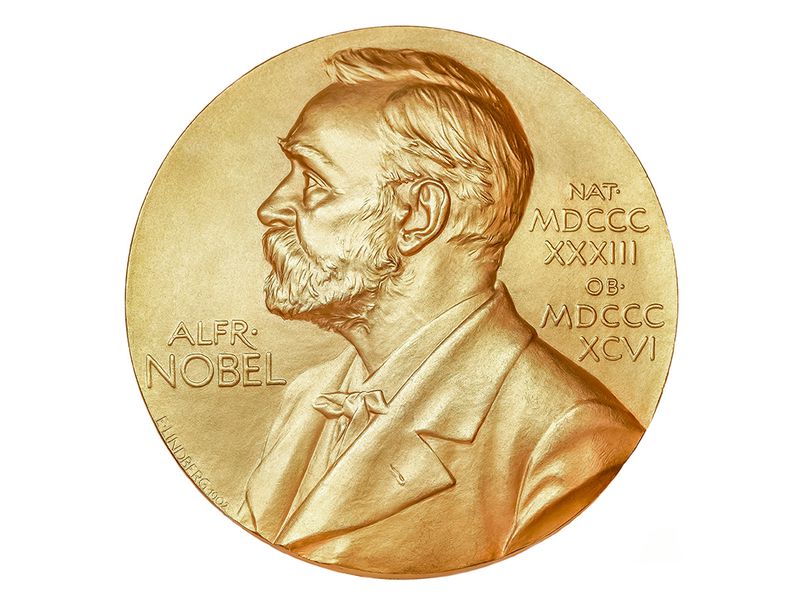Winners of the 2018 Nobel Prizes Announced
October 16, 2018
Last week, the winners of the 2018 Nobel Prizes were announced. This year’s winners included scientists who weaponized the immune system to fight cancer, a chemist who applied evolutionary principles to enzymes, and an economist who used macroeconomic principles to analyze climate change and its effects.
At the turn of the 20th century, the Nobel Prize was created as a way to commemorate the elite of the Chemistry, Literature, Peace, Physics, and Physiology or Medicine fields. Its namesake, Dr. Alfred B. Nobel (the chemist and physicist behind dynamite), created the prize and funded the monetary award through his will. In 1969, economics was added to the other fields.
For the Nobel Prize in Physiology or Medicine 2018, James P. Allison of the United States and Tasuku Honjo of Japan were recognized “for their discovery of cancer therapy by inhibition of negative immune regulation.” These two independent researchers both created drugs called immune checkpoint inhibitors that essentially remove the “brakes” that block T-cells from attacking tumor cells. By removing these “brakes,” the T-cells can properly attach to tumor cells. These drugs also mark the first time that a Nobel Prize has been given to cancer treatments.
For the Nobel Prize in Physics 2018, the Nobel Laureates were awarded prizes “for groundbreaking inventions in the field of laser physics.” Arthur Ashkin of the United States was recognized “for the optical tweezers and their application to biological systems” and Gérard Mourou and Donna Strickland, of France and Canada, were recognized “for their method of generating high-intensity, ultra-short optical pulses.” Dr. Ashkin’s work with optical tweezers allows for the use of “the radiation pressure of light to move physical objects.” Dr. Mourou and Dr. Strickland were recognized for their work on a technique that allowed researchers to boost the power of lasers and create “the shortest and most intense laser pulses ever created by mankind.” Dr. Bonna Strickland also became the third woman ever to win the Nobel Prize in physics, with the previous two female winners being in 1903 when Marie Curie won for her work on radioactivity and in 1963 when Maria Geoppert-Mayer won for her work on atomic structure.
For the Nobel Prize in Chemistry 2018, Frances H. Arnold of the United States was recognized “for the directed evolution of enzymes” and George P. Smith of the United States and Sir Gregory P. Winter of the United Kingdom were recognized “for [their work on] phage display of peptides and antibodies.” Dr. Arnold was able to create specific and new enzymes by randomly mutating the DNA of similar enzymes. This procedure is fundamental in the use of enzymes for commercial, industrial, and research use. Dr. Smith and Dr. Winter both did work on bacteriophages, which are bacteria-infecting viruses. They found that by inserting DNA that codes for specific antibodies into the viruses, they could stick the antibodies to the outer shell of the virus. This procedure allows for viruses with specialized antibodies to bind to other bacterias and viruses and signal immune responses. It is an important treatment for autoimmune diseases and certain cancers.
For the Nobel Peace Prize 2018, Denis Mukwege of the Democratic Republic of Congo and Nadia Murad of Iraq were recognized “for their efforts to end the use of sexual violence as a weapon of war and armed conflict.” Dr. Denis Mukwege was awarded for his work in “helping the victims of sexual violence in the Democratic Republic of Congo” through the establishment of the Panzi Hospital. Nadia Murad was a formal victim of sexual violence at the hands of IS (the Islamic State). She was able to escape and decided to speak openly about her abuse. In 2016, she was named the UN’s first Goodwill Ambassador for the Dignity of Survivors of Human Trafficking.
For the Sveriges Riksbank Prize in Economic Sciences in Memory of Alfred Nobel 2018, William D. Nordhaus of the United States was recognized “for integrating climate change into long-run macroeconomic analysis” and Paul M. Romer of the United States “for integrating technological innovations into long-run macroeconomic analysis.” Both researchers used models to analyze the interactions of the economy with climate change and technology.
This year’s Nobel Prize in Literature 2018 has been postponed until next year due to the Swedish Academy being hit with a string of resignations and accusations of sexual assault. The Swedish Academy, which nominates writers for each year’s prize in literature, stated that in 2019 there will be two prizes awarded, one for 2018 and one for 2019.


















































































































































